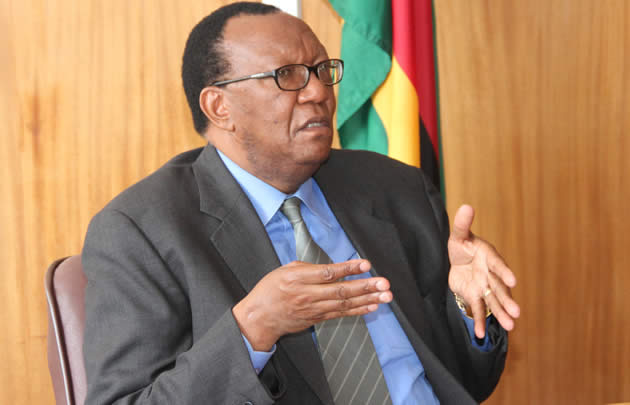RDCs, agric ministry on collision course

Walter Nyamukondiwa Chinhoyi Bureau
Rural District Councils (RDCs) and the Ministry of Lands and Rural Resettlement are headed for a showdown, with local authorities accusing Government of failing to make meaningful disbursements to them from land rent collected from farmers. Late last year, the ministry took over the collection of land rentals from RDCs, arguing that all the money was supposed to be deposited to Treasury first before being distributed to the local authorities.
Government argued that some of the councils abused the money meant to develop infrastructure on farms including roads and schools. Following the takeover, some RDCs argue that a significant chunk of their revenue was swallowed, leaving them with no money to channel towards development.
The councils alleged that the ministry lacked capacity to reach out to every farmer eligible to pay rent, resulting in dwindling revenue as some farmers did not pay on their volition.
“We have not received anything meaningful despite assurances that we will get one third of everything that would have been collected,” said Hurungwe RDC chairperson Clr Tichaona Matthew.
“They are now appealing to us as rural district councils to help in the collection of the levies when at the end of the day we are left without money to do all the work like repairing roads, drilling boreholes for the people among other things.”
It has emerged that some farmers are still taking their levies to RDCs against Government directive through Finance Act No 8 of 2015, which allows only the Ministry of Lands and Rural resettlement to handle the levies.
Makonde RDC, for instance, was at one point expected to get around $300 000, but ended up receiving $15 000 after poor collection due to limited capacity by the ministry.
Lands and Rural Resettlement Minister, Dr Douglas Mombeshora, said it was too early to expect anything meaningful as farmers were only starting to get money with the opening of the tobacco auction floors.
“They cannot expect anything meaningful at this stage because farmers are only starting to receive money to pay their rentals now. Tobacco floors opened last week and crops will be sold soon.
“Farmers do not get money everyday,” he said. He said Government would soon make its position known on the matter. Mashonaland West provincial lands officer, Mr Malvin Mhaka, appealed to RDCs to provide assistance in the collection of the levies.
“We appeal to you rural district councils to assist our district lands offices in whatever way you can to collect land rentals so that you are able to get what is due to you,” he said.
Mr Mhaka thanked councils for helping in the collection of rentals before and indicated that the handling of the money would be done by lands officers.
However, on collection of rent and levies by some councils, Nyaminyami RDC chief executive officer, Mrs Tsana Chirau, said they were collecting arrears accrued before the new arrangement.
Zvimba Assistant District Administrator, Mr Emmanuel Chitombo, told the meeting that a comparison should be made between the status quo and the situation obtaining now on revenue collection.
“We need to assess the two systems and see which one serves us better. We cannot destroy the whole district when there is obviously no capacity on the part of the Ministry of Lands,” he said.
Ministry of Transport and Infrastructure Development provincial officer, Mr Finale Mapurisa, said a transitional mechanism was needed to manage the system.
“When zinara was given the mandate to collect money at tollgates, they did not have the capacity and zimra was roped in to manage the situation.
“Something similar can be arranged to manage the transition,” he said.
Mr Mhaka said some RDCs were refusing to give access to registers, which would make it easier for them to collect levies.
“RDCs stand to lose out if they do not help in process of collecting the levies,” he said.
Under the new arrangement, the Ministry of Lands and Rural Resettlement is allowed to retain money at source and give the local authorities their share and forward the rest to Treasury.
The Ministry will retain its portion of the land rent, which is expected to go towards compensating white former farmers.
Farmers are paying $1 land tax per hectare to rural district councils.
A2 farmers pay $3 land rental per hectare per annum and $2 unit tax per hectare annually.
A1 communal farmers on the other hand pay $10 land rent a year and another $5 unit tax over the same period.
Prior to the changes, Ministry of Lands would collect the money and hand it over to Treasury which would then transfer the funds to the relevant ministries.
That created problems as treasury at one point failed to transfer the money due to pressing commitments.
RDCs are owed millions of dollars in unpaid unit tax by farmers with some taking the matters to the courts.









Comments